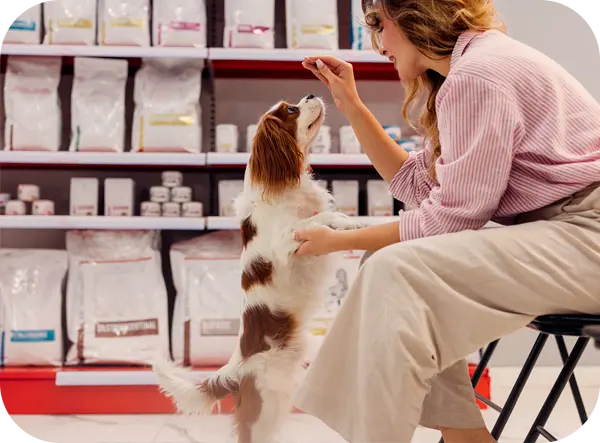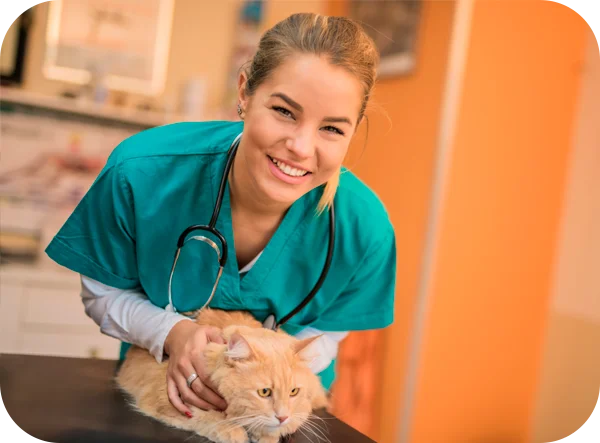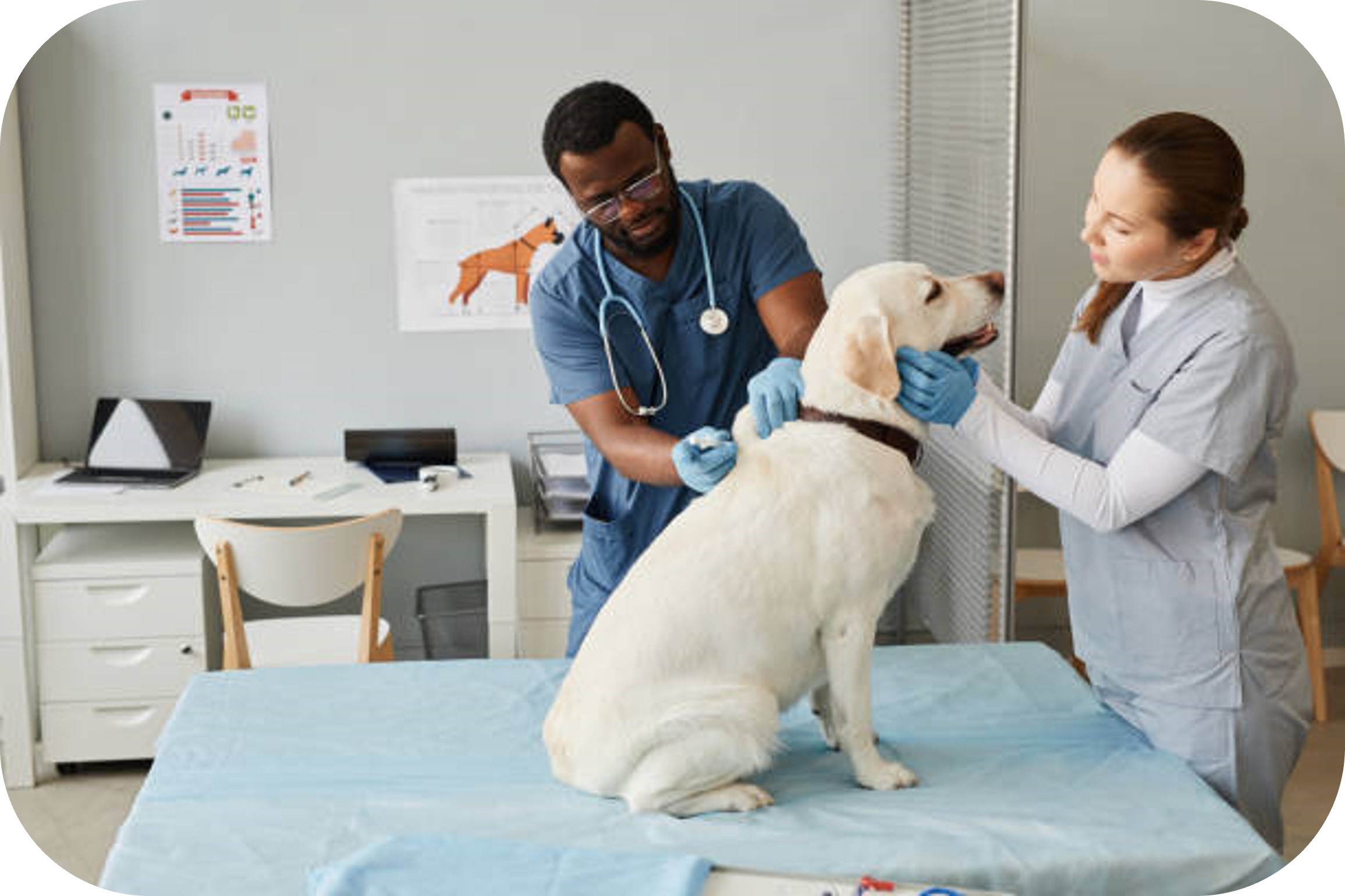Veterinarian indemnity and liability insurance
Your line of work is unique, so we’ve tailored an insurance policy that best suits the needs of your profession to better protect your reputation and livelihood.
Principle partner of


If you're forced to defend your professional reputation, you'll want the best support behind you.
Our policies include three types of insurance in one designed specifically for veterinarians combining: professional indemnity insurance, public liability insurance, and product liability insurance.
Product liability
Insurance cover for liability for injury or property damage caused by goods sold or supplied by you. This can include cover for clients getting sick or injured from products you provide for example; Animal medications, flea treatments, bandages and other products.
Extra benefits of this insurance policy
Nil basic excess on liability claims
Run-off cover which protects you when you’ve ceased practising permanently
Cover for legal costs and expenses associated with complaints to your registration body, disciplinary proceedings or a coronial inquiry
Provides a 21-day cooling-off period, allowing you to change your mind after purchasing coverage
Ongoing education through our RiskHQ, providing you with relevant and informative information on the risks that matter to you
Round-the-clock support with 24 / 7 claim support line availability
To find out more or to get your hands on our policy wording, simply call us on 1800 810 213.
FAQs
The law governs that any professional exercise the required skill to an appropriate level expected by that profession. A professional may be liable for financial loss, injury or damage arising from an act, error or omission of fault if the professional has not acted to the required level of skill deemed in that profession. Failure through this may result in the claimant (person who suffered the loss) be awarded for that loss, damage or injury.
Many professions require you to hold a professional indemnity insurance policy by law, such as Ahpra registered professions, but can be for other industries such as financial institutions also. Please check with your registration body or associations of your profession to know if it is required by law to have professional indemnity insurance. It is often also required by companies who take on contract workers that are not governed under the companies own insurance policy. It is acceptable for a company to ask you as the professional contractor to provide evidence of cover for professional indemnity before starting the contract period.
As stated above professional indemnity insurance covers you for breaches in relation to your professional duty. Liability insurance covers you for activity that results in personal injury or property damage as a result of your business activities that do not relate to your specific profession. An example may be someone who trips and is injured from spilled water within your office may be covered under liability, because it is your duty of care as business person to provide a safe environment. Whereas a person who suffers a loss or injury because of your professional treatment in relation to your job has caused it would usually be consider as an indemnity breach.
Generally business insurance is to cover the physical assets of your business for material damage loss and options for theft cover. It can also include cover for financial loss due to business interruption. Usually basic insurance does not cover breach of duty or flood cover, but if you speak to an insurance specialist it can often be added to your policy for a nominal fee.
Depending on the policy you are taking out, covers will often vary. At Guild insurance we specialise in making a policy to suit your business so that you are not over paying for covers you wouldn't normally need. The best thing to do is call 1800 810 213 to speak to an insurance specialist, they can find out what activities and structure your business is in to then provide you with adequate cover for you.
A certificate of currency (or COC for short) is a written document that confirms that your insurance policy is current and valid at a specific date and time. At Guild we provide easy access to your COC at any time within a few clicks of our online portal PolicyHub. If you are a new customer we can provide you with one post purchase.
Our partnership with AVA
Guild is the principal partner of AVA and has been for over 20 years.
We work closely with your association to tailor an insurance policy suited to your unique needs.
The AVA is Australia’s peak body for veterinary professionals, dedicated to advancing animal health, welfare, and veterinary science through advocacy, education, and professional support.
Insurance for students studying to be a veterinarian
As a student, we understand you’ve got enough to worry about between completing your studies, getting enough practice hours in and preparing yourself for working with clients. The last thing on your mind is insurance cover. But one small accident could set you back for life. And that’s why AVA has chosen Guild Insurance to look after your insurance needs.
Simply register with AVA under the Student Policy to be eligible for your cover.

Not just an insurance policy
Risk articles with RiskHQ

You can visit RiskHQ at any time to read up about the unique risks you face as an veterinarian. We cover a variety of risk management topics, from managing complaints, to social media risks, maintaining your vet, and much more.
Let the record show... Veterinary record keeping
Medical record keeping is unfortunately one of those dreaded risk management topics. Guild Insurance understands that it isn’t the most interesting of topics for veterinarians to spend time thinking and talking about. However, it’s incredibly important, and Guild’s claims management experience suggests veterinarians would benefit from learning more about good record keeping.
Records and insurance claims
Records can impact insurance claims in two ways:
1. Poor records can contribute to a poor or unexpected outcome following treatment, leading to the client complaining and possibly seeking some form of compensation. For example, a dog’s weight was incorrectly recorded in the record due to a simple data entry error. This led to the dog being given a dose of medication which was too high; unfortunately the dog suffered renal damage and died as a result.
2. Poor records may make a complaint, and therefore an insurance claim, difficult to defend due to the lack of evidence of what took place and why. Poor clinical outcomes and dealing with complaints can be very challenging and confronting. Therefore, understanding how to improve the standard of records really should be a focus.
Why keep detailed records?
1. Continuity of care
It’s not uncommon to hear veterinarians believe they can remember the details of their consultations. However, at Guild we see examples where veterinarians haven’t remembered key aspects of prior consultations and treatment, and this has led to a poor outcome for the animal. It’s therefore imperative to have this information recorded to ensure certainty as to how and why you’ve treated an animal in the past. It’s also important to be sure you refer to the information within the record. Animals can suffer harm when key information is overlooked or forgotten about and they’re therefore not treated accordingly.
2. Regulatory requirement
All State and Territory Veterinary Boards within Australia have some sort of guideline or policy about a veterinarian’s obligations and requirements regarding record keeping. It’s the responsibility of every veterinarian to make themselves aware of and comply with the various codes, guidelines and policies relevant to them. Not knowing is not an excuse for not complying.
3. Defence of a complaint
If there’s an allegation of wrong doing made against a veterinarian, their records are going to be incredibly important. Those records provide evidence of what took place and why. Without this, the veterinarian will be relying on their memory as a defence. Information recorded at the time of the consultation is going to hold greater weight as a reliable defence than a veterinarian’s memory months after an event. As the saying goes ‘Good records = good defence, poor records = poor defence and no records = no defence’.
What to record?
A question many veterinarians ask when it comes to record keeping is, ‘How much detail do I need to record?’ Veterinarians should refer to their relevant Veterinary Board’s information to better understand the detail required in a record. Exactly what to include can vary according to the specifics of the animal’s condition and treatment. However, generally records should include, but aren’t limited to:
- client identification
- treatment date
- animal(s) identification
- history
- examination details
- diagnosis
- treatment options offered and given, prescribed, or supplied
- informed consent
- response to treatment
- other records/reports such as imaging reports, laboratory reports or specialist/referral reports
- information provided to the client including post treatment instructions
In some cases, it’s worth noting what didn’t occur as well as what did. For example, if a client has refused to consent to what would be considered the most ideal or obvious treatment option, the record should reflect that it was discussed and declined. If it’s simply left out of the record, it would appear that it wasn’t discussed as an option.
When veterinarians are unsure if they have included enough detail, they should ask themselves whether or not another veterinarian could read the record and understand the full picture of what took place and why, without the treating veterinarian filling in any gaps. If the full story isn’t there, there isn’t enough detail.
Professional and objective
Records need to always be professional and objective. Criticisms of the client can be included, however this must be professional and only when relevant to the treatment being provided. This may occur in situations where the client isn’t complying with instructions and this is detrimental to the health of their animal. However, it’s important to remember that records can be accessed and read by a number of people, including the client and your regulator, so always be mindful of the language used. The language used should match the professional language a veterinarian would use when speaking to the client during a consultation.
Changes and corrections
If it’s noticed that errors have been made in a record, changes can be made to correct this. However, information should never be deleted. The original information must remain with a note explaining the correction and when the correction was made. Also, if additional information needs to be added to a completed consultation note, it should be done so it’s clear this is additional information and the date it was added.
- Veterinarians
- Professional
- Record-keeping
Insurance for Veterinarian Businesses
If you own a veterinarian and need insurance for your building, contents and more. Visit our information on business insurance for veterinarian businesses.

*Coverage up to $20 million requires your selection of cover up to this limit during the quote and purchase process.





Write a review Average rating: